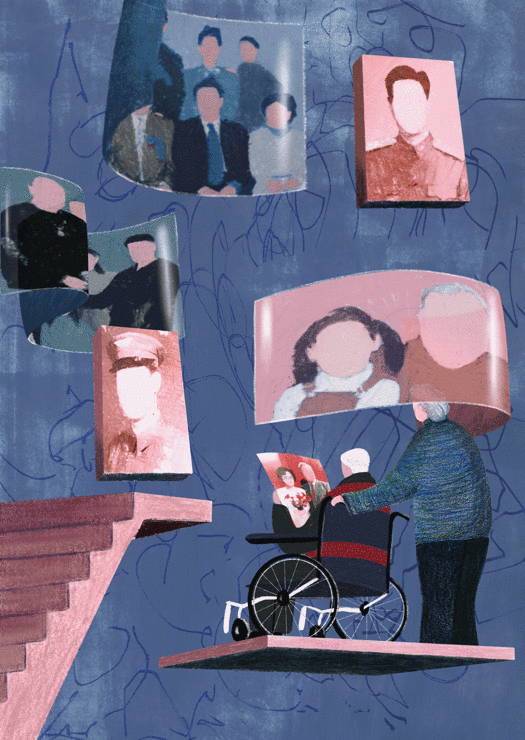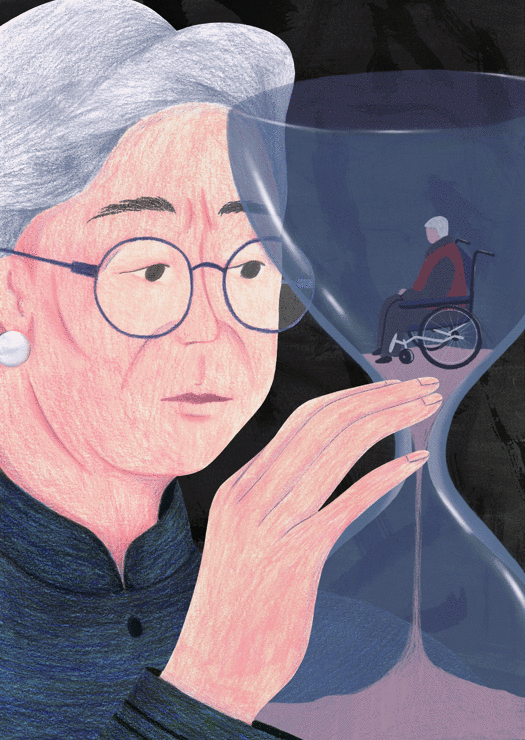

How did you first find out that Grandpa had Alzheimer's disease?
I knew nothing at first. He just had a bad sense of directions and a bad temper. Then one time he went to the hospital and the doctor said he might have Alzheimer's disease.
Did you suddenly feel really sad when you found out?
I didn’t know much about this disease at first. I just thought I should take more care of him, but I didn’t take it seriously.
The early symptoms of Alzheimer's disease include memory loss or lapses, time and place disorientation, irritability, etc. As soon as noticing the onset of early symptoms, the family members should pay high attention, and try to recognise, diagnose and provide care timely.
Hmm... I can remember seems like... after two or three years, Grandpa was completely unable to take care of himself, so you were always taking care of him. What is the most important thing in taking care of such a patient?
As his illness became more and more serious, he became very grumpy. Sometimes he hit and cursed people. So, we should take care of him with tolerance and affection.
Didn't you ever think about sending Grandpa to a nursing home in this situation?
I thought about it, but I didn’t want to. He needs someone to take care of everything now. If I don't take this responsibility, I don't think anyone can replace me.
In the moderate stage, the person will develop emotional and behavioural problems, such as aggression, delusion, depression or anxiety, etc. In the advanced stage, they lose self-care ability and need full-time care support. Families should maintain empathy, listen to the person, and experience their feelings.




Did you feel lonely taking care of him all by yourself?
Sometimes I get the feeling when I see other old couples walking around outside. It seems that I’m quite lonely. But he is still a companion for me, and I will not be lonely when I’m busy taking care of him. Now he has forgotten everyone except me which proves that companionship is still important.
Family members also endure various pressures during the journey of care for persons with dementia. They may experience emotional and physical challenges. Therefore, we have to make the physical and mental health of carers as priority, apart from paying attention to the person with dementia.
You know, as a person, he slowly forgot all the things that happened over the decades. Like, we often say that the most precious thing is our memories. Is that very sad when a person has forgotten everything?
Hmm, maybe... People who forget those things are not sad, the sadness is for the people who still remembered.
Yeah... People who forget are not sad. Sadness is for those who still remember.
There is one new case with dementia every 3 seconds worldwide. Alzheimer's disease remains irreversible and cannot be cured now. The burden and troubles it brings to persons with dementia and their families are far beyond our imagination.


Please download the Artivive App to view the AR effects (The four illustrations on the home page are available to watch).
